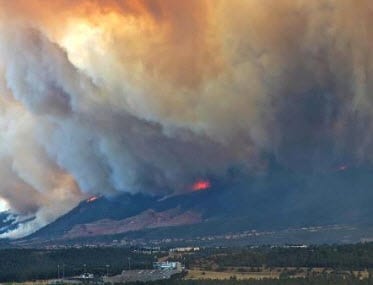The tremendously destructive wildfires in the state have caused underwriters to come together to overhaul the system.
Over the last three years, Colorado has experienced devastating wildfires that have ignited an overhaul of the state’s homeowners insurance system, in the hopes that consumers might begin seeing some positive changes over the next few several weeks.
The situation in the states has undergone a considerable change that has brought coverage to the spotlight.
According to Carole Walker, the Rocky Mountain Insurance Information Association executive director, “The cycle of natural disaster has brought to the forefront the importance of insurance. A few years ago, there wasn’t much attention.” In response to their frustrated constituents, legislators have now passed House Bill 1225 in order to boost the type of protections residents are receiving. This will apply primarily to homeowners insurance.
 The changes will involve homeowners insurance coverage in the event of a total loss.
The changes will involve homeowners insurance coverage in the event of a total loss.
These changes will also be geared toward making sure that home insurance customers will know exactly how they are covered in the event that they should face an unexpected peril. The new provisions will become effective as of next year, although there are some parts that will be visible to consumers even before that time. For instance, when renewal statements arrive, some consumers could find that they are receiving disclosures of greater detail, and agents may begin inviting their customers to sit down and review policies at renewal time.
One primary issue that has occurred throughout the disasters that have recently happened in Colorado is that the replacement coverage limits within homeowners insurance policies were falling short of what the policyholders required in order to rebuild a similar home to replace the ones that had been destroyed.
When a large number of homes within a small area have all been destroyed, it can cause the cost of rebuilding to suddenly spike, particularly when this happens in remote locations. Other issues that can cause these costs to rise are changes in building codes, explained Walker. It was just this type of circumstance in which homeowners insurance customers have been finding themselves, leading their coverage to fall short of their needs.
